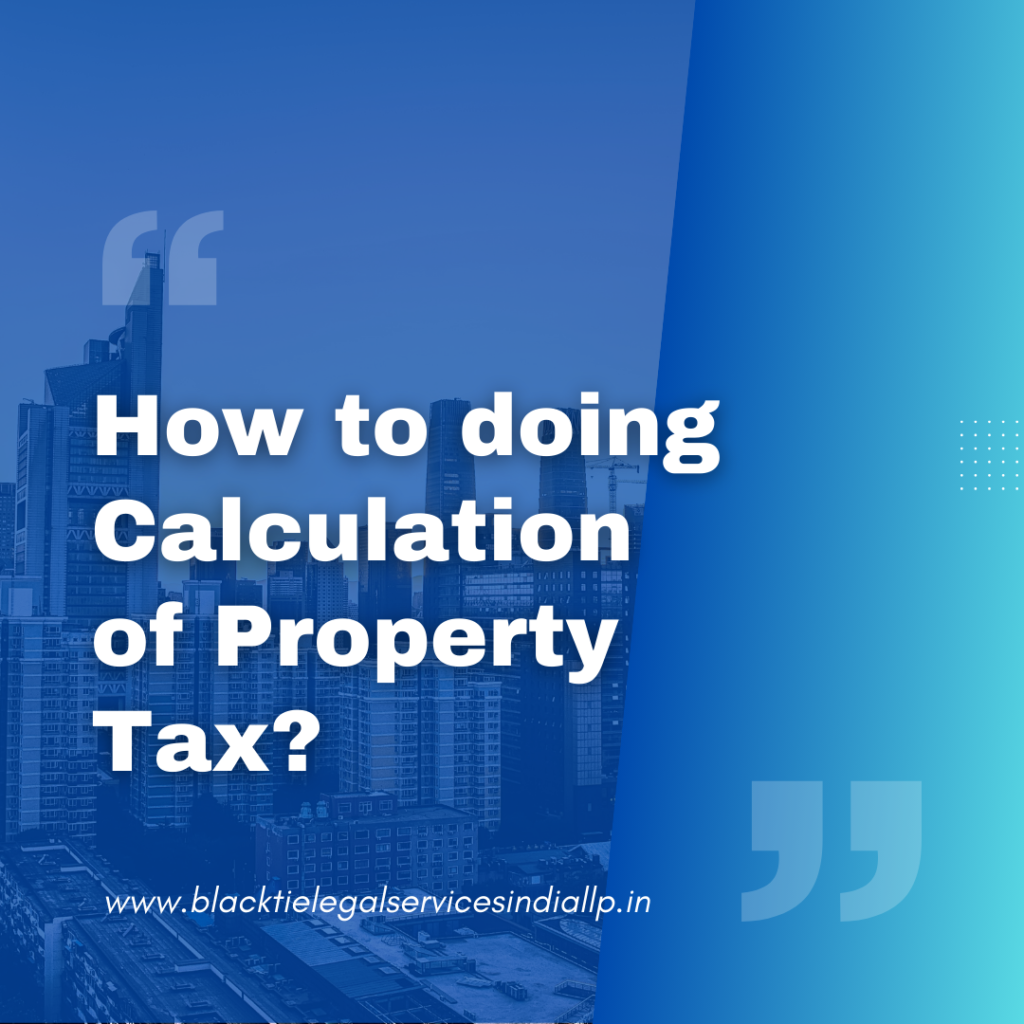
You may not yet know how much property taxes are significant in India, it is a very key feature of the fiscal policy of our country which affects both the structure of local government’s income as well as the regime of property rights.
Property taxes in India are taxes levied on all immovable properties that serve as a major revenue source for municipal corporations and local governing bodies, which in turn, use the amount collected to develop and maintain our country’s infrastructure and public services.
Understanding all the intricacies of property taxes in India is a must for property owners, potential investors and every individual and business mind interested in the real estate market of the country.
Therefore, in this blog post, we are going to explain to you all about property taxes in India and every aspect of it, including calculation method, role of municipal corporations and all in detail.
- What is Property Tax?
- What is the Property Tax Application Number?
- How Many Types of Property Taxes in India?
- What is the Purpose of Property Taxes in India?
- What are the Advantages and Disadvantages of Property Taxes in India?
- How to Doing Calculation of Property Tax?
- How to Pay Property Tax Online?
- In Conclusion
- FAQs
What is Property Tax?

Property tax is a tax that is levied by the government of our country on property ownership through local government authorities. This tax is usually based on the property value of the property. Property owners have to file this tax on an annual basis depending on the rules of the local governing body.
What is the Property Tax Application Number?

The Property tax application number is a registration number that a property owner gets when he/she fills an application for payment of property tax with the local municipal corporation or other governing bodies.
It is used in the tracking of the property tax records for the specific property indicated in this number.
The Property Tax Application Number is crucial for:
- Tracking Payments: Proactively it enables the property owners and the municipal authorities to monitor the paid property taxation, and confirm that has been properly allocated to that property.
- Verification: It is used on checking property details and the tax expected to be paid on the particular property.
- Future Reference: It is used in any subsequent property tax transactions one is to engage in or when asking questions about the property.
How Many Types of Property Taxes in India?

There are lots of types of property tax in India which must be known and very important for every individual, we have mentioned it in a concise manner:
- Real Property Tax: This tax is the most ordinary tax under types of property taxes in India and also this tax is levied only on permanent structures attached to the land like houses, commercial buildings and other properties.
- Personal Property Tax: This type of tax is levied only on any property that is not fixed to any land such as vehicles, machinery, equipments and furniture among others.
- Special Assessment Tax: This type of tax is levied for some particular public projects like construction of new roads, use of streetlights or construction of sewer lines.
- Transfer Tax: This tax is also known as transport tax or deed tax in India, this tax is imposed on an individual when the property is sold or transferred from one owner to another.
- Estate Tax: Sometimes this tax is also known as inheritance tax or death tax. This tax is levied on someone when the property of the deceased person is transferred to his heirs.
- Vacant Property Tax: There are many such properties that some jurisdictions impose tax on them if they are lying vacant or underutilized. This is always done to develop all those unused properties and reduce urban blight to a great extent.
- Luxury Property Tax: There are a number of areas where high-value properties, such as luxury homes or commercial buildings, may be subject to additional tax rates beyond the standard property taxes.
What is the Purpose of Property Taxes in India?

There are lots of purposes of property taxes in India, which we have mentioned all of them below in a concise manner for you:
- Revenue Generation For Local Government
- Funding Public Services
- Encouraging Property Development
- Maintaining Public Amenities
- Environment Conservation
- Ensuring Equitable Development
What are the Advantages and Disadvantages of Property Taxes in India?

There are many advantages and disadvantages of property taxes in India, out of which we have mentioned some major ones below:
| Advantages of Property Taxes in India | Disadvantages of Property Taxes in India |
| It helps to revenue Generation | Burden on Property Owners |
| It encourages the development | Inequitable Assessment |
| Property taxes supports public services | Complex Process |
| It promotes accountability | Potential for Corruption |
| It improves infrastructure | Lack of Transparency |
| It helps to provides long-term funding | Difficult for Low-Income Groups |
| It supports local governance | Inconsistent Valuation Practices |
| Incentivizes Efficient Land Use | Resistance to Tax Increases |
| It help to enhances urban planning | High Collection Costs |
| It helps to Control Real Estate Speculation | Limited Relief for Senior Citizens |
How to Doing Calculation of Property Tax?

The calculation of property tax involves several steps that vary widely depending on the jurisdiction. Hence, we have explained the procedure for calculating property tax below in detail:
- Determine the Property’s Assessed Value
Assessed Value: This is considered a very important aspect of your property which is only determined by your local tax assessor and is usually a percentage of the market value of the property.
Market Value: An estimated value of the property that can be sold in the open market.
- Understanding the Assessment Rate
Assessment Rate: This is called a percentage of the market rate which is subject to all taxes, for example if the valuation rate of a property is 70% and your property’s market value is ₹ 10,00,000 then the assessment value will be ₹ 7,00,000.
- Apply the Local Tax Rate (Mill Rate)
Mill Rate: Property tax rates in India are always expressed in “mills.” A mill represents one-tenth of a cent and is usually the amount per ₹1,000 of assessed value.
- Calculate the Property Tax
Formula: Property Tax = Assessed Value×Mill Rate
Example:
- Market Value: ₹10,00,000
- Assessment Rate: 70%
- Mill Rate: 20
- Assessed Value: ₹10,00,000 × 0.70 = ₹7,00,000
- Property Tax: ₹7,00,000 × 0.02 = ₹14,000
- Consider Exemptions and Deductions
Exemptions: Some properties may be eligible for tax exemptions such as those for senior citizens, veterans or agricultural land. This can help reduce your tax rate significantly.
- Check the Local Authorities
Since property tax calculations can vary widely by jurisdiction, it’s important to check with your local tax authority or municipal office for the exact rates, exemptions, and procedures applicable in your area.
How to Pay Property Tax Online?

Pay property tax online in India is considered to be a very convenient procedure. The rates vary slightly depending on the local municipal corporation or authority in charge of tax collection, although the general process follows a similar pattern.
Step-by-Step Procedure for Paying Property Tax Online
Step 1: Vist the official Municipal Website
- Find the Website: First of all, visit the website of Municipal Corporation, Municipality or local governing body of your area.
- Look for the Property Tax Section: Once you visit the website, you can go to the section related to property tax. And this is usually found under all the headings like “Online Services,” “Property Tax,” or “E-Services.”
Step 2: Enter Your Property Details
- Choose the Tax Payment Option: In the 3rd step you click on the section for paying property tax online.
- Enter Property ID/Account Number: In some areas, you will need to enter the property identification number, account number or assessment number. Sometimes this number may be on the previous year’s property tax statement or it may need to be obtained from the local municipality.
- Verify Details: After entering all your details, it is very important that you first verify that all the details of the display are matching with your property details
Step 3: Calculate the Tax
- Review Tax Dues: Your remaining property tax amount will be displayed on the website, which will also include the late payment penalty.
- Choose Assessment Year: Now you will select the year you are paying property tax.
Step 4: Make the Payment
- Select Payment Method: Most municipal websites offer a variety of payment options.
- Credit / Debit Card
- Net Banking
- UPI (Unified Payments Interface)
- E-Wallets
- Proceed with Payment: Select your favorite payment procedure, input necessary data, which are connected with the payment (for example, details of your card or bank), and complete the payment.
Step 5: Receive the Receipt
- Download Payment Receipt: After a proper transaction has been made the website will display a message to signify that your transaction was successful and acknowledge or receipt of payment will be given.
- Email/SMS Confirmation: At times you also note that an email or an SMS is sent to you as confirmation of the payment made.
Step 6: Keep Records
- Save the Receipt: The beneficiary of the payment has to make sure that he retains a photocopy of the payment receipt. Another plus on this receipt is that it can serve a purpose later in other transactions of property or in legal processes.
In Conclusion

As you may have learned, property taxes in India are one of the most complex, and indispensable, elements of the Indian fiscal system.
They serve first and foremost as a funding base for local governments as they ensure that they get finances, which they use to finance certain public services as well as build infrastructure.
However, the property taxes in India system has several weaknesses; for example weaknesses in the assessment and collection process, opacity and high levels of tax compliance.
FAQs
Q1. Is property tax deductible in india?
A1. Expense in relation to property cannot be deducted when claimed as property tax, but serves as an adjustment against the gross rental income and the profit made from the sale of property.
Q2. How to avoid tax on sale of property in india?
Use the amount from capital gains for another residential property within specified years (Section 54) or Government Bonds under section 54EC so as to be exempt from taxes on property sale.
Q3. How much is property gain tax in India?
A3. Long Term Capital Gains Tax in India is popularly referred as Property Gain Tax. It is 20% with indexation benefits if the property is retained for more than two years, or from the year in which the property became vacant. Without indexation, it’s 30%.
Q4. Which house property is exempt from tax?
A4. It is not fully deductible cost, but as it affects taxpayers’ assessed rental income and capital gains on property disposal.
Q5. How much capital gain is exempted?
A5. Long-term capital gains on equity shares or equity-oriented funds up to Rs. 1.25 lakh per year are exempt. Beyond this limit, a 12.5% tax applies.


Add a Comment